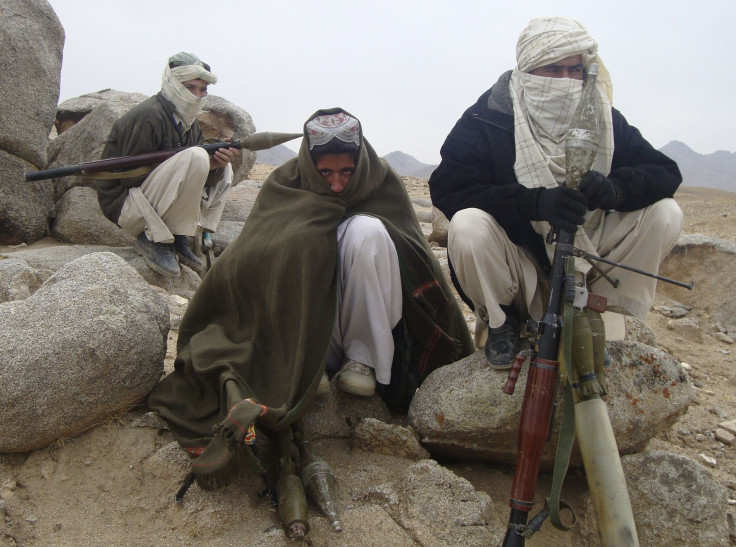Taliban Confirms Mullah Omar's Death, Says 'Not Aware' Of Peace Talks

Update as of 1:00 a.m. EDT: The Taliban on Friday officially confirmed the death of its leader Mullah Omar, in a statement posted on its website. According to the statement, Omar died “as a result of an illness.”
“Despite the military might and intelligence tracking of America and all her allies, [Omar] continued to live in Afghanistan and in the previous fourteen years never for a single day did he leave Afghanistan to visit Pakistan or another country,” the Taliban said in the statement. “Some time ago he became ill which intensified in the last two weeks before he passed away from this world.”
Mullah Akhtar Mansoor, a longtime deputy of Omar, will now be the Taliban’s new leader, Agence France-Presse reported, citing a different Pashto-language statement by the militant group.
Original story below:
The Taliban leadership in Afghanistan is “not aware” of a new round of peace talks -- originally scheduled to take place in Pakistan later this week -- with the Afghan government, the militant group said, in a statement released early Thursday. The statement, which appears to indicate either a schism within the ranks of the Taliban or a shift in the group’s stance, did not make any mention of reports of its leader Mullah Omar’s death.
“Media outlets are circulating reports that peace talks will take place very soon between the Islamic Emirate and the Kabul regime either in the country of China or Pakistan,” the Taliban said, in the statement. “The Islamic Emirate [Taliban] has handed all agency powers in this regard to its Political Office and they are not aware of any such process.”
Earlier this month, Pakistan mediated a meeting between the Taliban and members of the Afghan High Peace Council, in a step toward ending more than 13 years of violent conflict in Afghanistan, where the Taliban have been attempting to reassert control over the territories it lost when its government was toppled during a U.S.-led military intervention in 2001.The talks, which were suspended during the Islamic holy month of Ramadan, were to resume Friday.
Although it is not yet clear if the Taliban is now completely pulling out of the negotiations, the latest statement would definitely cast doubts over the credibility of the ongoing peace efforts in the region.
“The government of Afghanistan believes that grounds for the Afghan peace talks are more paved now than before, and thus calls on all armed opposition groups to seize the opportunity and join the peace process,” the Afghan government said Wednesday, after confirming that Omar -- hidden from public view since 2001 -- had died in Pakistan in April 2013. However, the circumstances of his death were not revealed and a Taliban spokesman initially rejected the reports.
Thursday’s statement comes just days after an Eid message, attributed to Omar, lent support to “legitimate” negotiations between the Taliban and the Ashraf Ghani-led Afghan government.
© Copyright IBTimes 2024. All rights reserved.






















